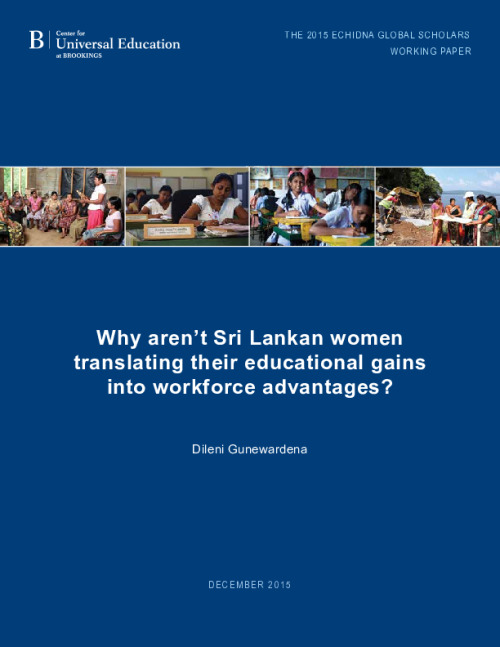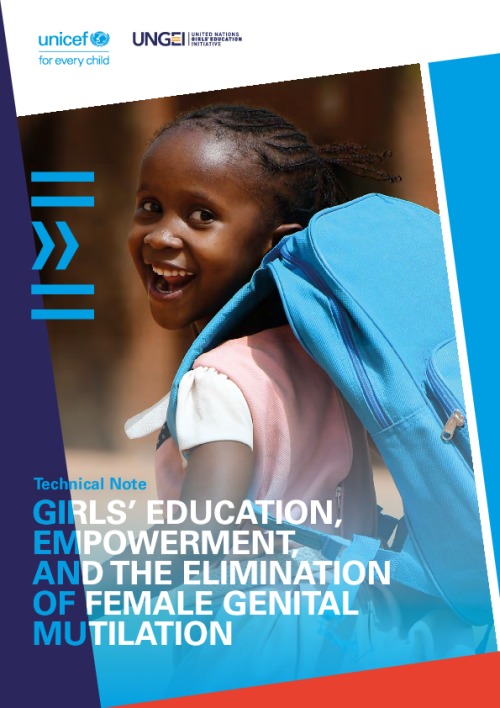Knowledge Hub
Learning and resources on gender in education

Why aren’t Sri Lankan women translating their educational gains into workforce advantages?
This paper focuses on Sri Lanka, a country with a long record of gender equality in education enrollment and high female completion rates, which has also been characterized by low and stagnant female labor force participation. It remains a puzzle why Sri Lanka has been unable to translate its high girls’ education gains into female labor force participation. This paper examines whether clues to the answer lie in (1) gender differences in skill acquisition, which have implications for education policy; (2) differences in the way the labor market...
This paper focuses on Sri Lanka, a country with a long record of gender equality in education enrollment and high female completion rates, which has also been characterized by low and stagnant female labor force participation. It remains a puzzle why Sri Lanka has been unable to translate its high girls’ education gains into female labor force participation. This paper examines whether clues to the answer lie in (1) gender differences in skill acquisition, which have implications for education policy; (2) differences in the way the labor market values identical skills in men and women, with implications for labor market policy interventions, or (3) in the gender division of labor in the household, which has implications for family-friendly and social policies. The paper analyzes the 2012 World Bank STEP Skills Measurement survey to address these questions.
More to explore
Sign up to the UNGEI newsletter
 en
en 


 العربية
العربية Български
Български Hrvatski
Hrvatski Čeština
Čeština Dansk
Dansk Nederlands
Nederlands Suomi
Suomi Français
Français Deutsch
Deutsch Ελληνικά
Ελληνικά हिन्दी
हिन्दी Italiano
Italiano Română
Română Русский
Русский Español
Español Maltese
Maltese Zulu
Zulu አማርኛ
አማርኛ